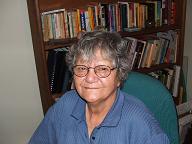'This book is written in three parts. The first part tells the story of my husband as a young boy growing up in Holland during the 1940s and 1950s, his migration with his family to Australia, and their return to Holland after two years. On their return, he joined the merchant navy, traveled the world, jumped ship in Sydney, and worked around Australia until he met me in Perth, Western Australia, in 1965.
'The second part tells my story of growing up in Aboriginal Australia during the 1940s and 1950s, the racist attitudes and policies, working as a nurse s aide, traveling across Australia, and returning to Perth, where I met my husband in 1965.
'The third part tells of our life together, the racism we encountered, raising our five children, traveling across the Nullabour Plain several times, moving around all the time, living in Holland, returning to Australia, me studying in adult education courses, children growing up and getting married, us becoming grandparents, and me completing my doctorate studies and retiring. I have now come out of retirement to work as an associate professor at Curtin University.' (Publication summary)


